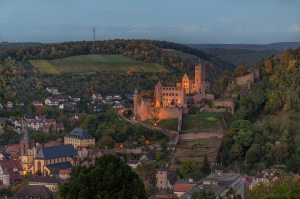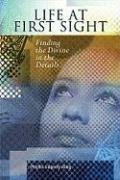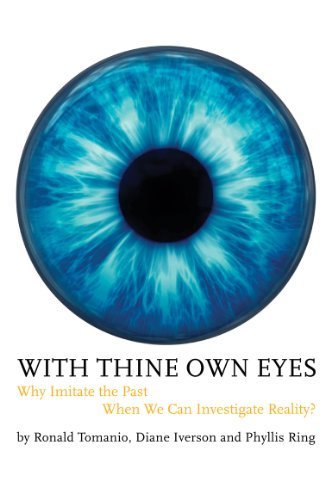Phyllis Edgerly Ring's Blog, page 35
October 31, 2014
Advancement in matters grievously neglected
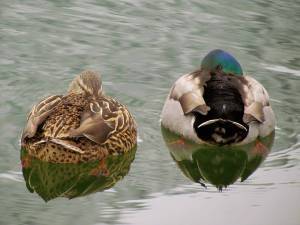
Photo: David Campbell / http://gbctours.com
“When woman’s point of view receives due consideration and woman’s will is allowed adequate expression in the arrangement of social affairs, we may expect great advancement in matters which have often been grievously neglected under the old regime of male dominance — such matters as health, temperance, peace, and regard for the value of the individual life. Improvements in these respects will have very far-reaching and beneficent effects.” ~ ‘Abdu’l-Bahá
Words and phrasing that stand out for me here include:
- due consideration
– adequate expression
– grievously neglected – and, of course
- far-reaching and beneficent effects.
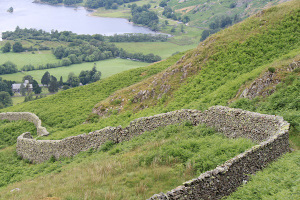
Photo: Kathy Gilman
What have these to do with my own choices – the powers of my own birthright? It can be so much easier to read a passage like this and feel thoughts pulled outward toward current conditions, and others’ behavior. Yet how does this all apply for me?
‘Abdu’l-Bahá also said:
“The world in the past has been ruled by force, and man has dominated over woman by reason of his more forceful and aggressive qualities both of body and mind.
But the balance is already shifting; force is losing its dominance, and mental alertness, intuition, and the spiritual qualities of love and service, in which woman is strong, are gaining ascendancy.
Hence the new age will be an age less masculine and more permeated with the feminine ideals, or, to speak more exactly, will be an age in which the masculine and feminine elements of civilization will be more evenly balanced.”
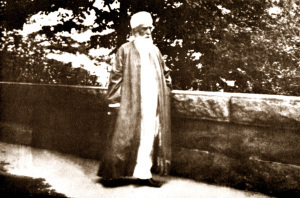
‘Abdu’l-Bahá on Riverside Drive, New York.
The reference for this, Star of the West, viii, No. 3, p. 4, notes that this is from a report of remarks he made aboard the S.S. Cedric upon arrival in New York, just after the Titanic had sunk. Although he was offered passage on the larger ship, he chose to travel instead on the humbler Cedric.
He shared these words at the entrance to New York harbor, the entrance point to a newer, freer life for so many souls, and the leading edge of his arrival in the West after nearly a lifetime of imprisonment based on religious persecution.
What part might such “feminine” ideals and qualities as “mental alertness, intuition, and the spiritual qualities of love and service” have played in his choice of the ship upon which he chose to travel? In his choosing to utter these words in that time and place?


October 28, 2014
The portion worth adding to
GLEANINGS FOUND HERE AND THERE:
There is no need to choose between science and spirituality. But there is certainly a need, as there has always been, to choose between materialism and spirituality.
~ Mario Beauregard
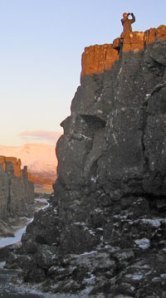 Times are difficult globally; awakening is no longer a luxury or an ideal. It’s becoming critical.
Times are difficult globally; awakening is no longer a luxury or an ideal. It’s becoming critical.
We don’t need to add more depression, more discouragement, or more anger to what’s already here. It’s becoming essential that we learn how to relate sanely with difficult times.
The earth seems to be beseeching us to connect with joy and discover our innermost essence. This is the best way that we can benefit others.
~ Pema Chödrön
Worry pretends to be necessary but serves no useful purpose.
If we can stay true to the sacred substance and sacred meaning of the seed, it will help us to be a place of rebirth: a place where the inner and outer worlds meet, where real nourishment can once again be born and flower.
Working together with the Earth, with its wonder and mystery, we can help in its healing and regeneration.”
~ Llewellyn Vaughan-Lee


October 26, 2014
Pathway to the hearing ear
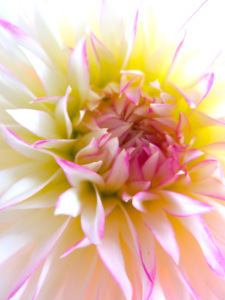
Photo: D. Kirkup Designs
The ability to simplify means to eliminate the unnecessary so that the necessary may speak.
~ Hans Hofmann
If I practice silence, even for small moments each day, what might I hear that is otherwise drowned out by my voice, or my thoughts? How can this allow what I express to move beyond the mind’s running commentary? How might it help me to imbibe, investigate, and reflect, and draw me into deeper, richer soils in which to plant seeds of viable ideas?
Lama Willa Miller, spiritual director of New Hampshire’s Wonderwell Mountain Refuge retreat center, describes how retreat, and silence, are gifts available to us each day — if we receive them. “Taking such a sacred pause allows us to draw away from the busyness of everyday life …. “That’s where we can check in with ourselves about what we’re doing and where we’re going, and why; where we can ask the kinds of questions needed for living a meaningful life.”
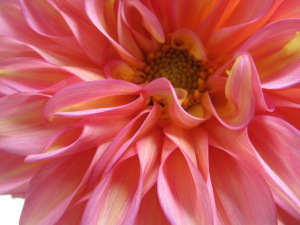
Photo: https://www.etsy.com/shop/DKirkupDesigns
This, it seems, is where we have the most needful and life-sustaining conversation of all. “Once you find that quiet,” she says, “you also discover that it gives you space, and with that comes peace, and clarity.”
In an address given at the Westminster Friends’ Meeting House in London in January of 1912, ‘Abdu’l-Bahá said: “Bahá’u’lláh says there is a sign from God in every phenomenon. The sign of the intellect is contemplation, and the sign of contemplation is silence; because it is impossible for man to do two things at the same time – he cannot both speak and meditate.
It is an axiomatic fact that while you meditate you are speaking with your own spirit. In that state of mind you put certain questions to your spirit, the spirit answers, the light breaks forth, and reality is revealed …
Meditation is the key for opening the doors of mysteries. In that state man abstracts himself: in that state man withdraws himself from all outside objects; in that subjective mood he is immersed in the ocean of spiritual life and can unfold the secrets of things-in-themselves. To illustrate this, think of man as endowed with two kinds of sight; when the power of insight is being used the outward power of vision does not see.”
This faculty of meditation frees man from the animal nature, discerns the reality of things, puts man in touch with God.”


October 24, 2014
We’re all crew on this ship
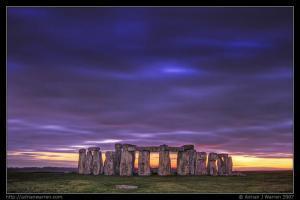 In these times of tumult, for mind and heart, words of Buckminster Fuller’s are a kind of psychospiritual re-alignment that opens a horizon of hope:
In these times of tumult, for mind and heart, words of Buckminster Fuller’s are a kind of psychospiritual re-alignment that opens a horizon of hope:
“I live on Earth at present, and I don’t know what I am.
I know that I am not a category. I am not a thing – a noun.
I seem to be a verb, an evolutionary process – an integral function of the universe.”
Bucky Fuller was deeply knowledgeable – and concerned – about sustainability, and also optimistic about humanity’s future.
He defined wealth as real and applicable knowledge that would also protect, nurture, support, respect and include the needs of all life here on what he called “Spaceship Earth”.
 He suggested that humans had attained an “unprecedented state” at which accumulation of relevant knowledge, combined with quantities of major recyclable resources that had already been extracted from the earth had reached the level at which competition for necessities was no longer a necessary or a wise strategy.
He suggested that humans had attained an “unprecedented state” at which accumulation of relevant knowledge, combined with quantities of major recyclable resources that had already been extracted from the earth had reached the level at which competition for necessities was no longer a necessary or a wise strategy.
Rather, he said, cooperation had become the optimum foundation for survival.
“Selfishness,” Bucky declared, “is unnecessary and hence-forth unrationalizable … War is obsolete.”
He also emphasized that truly viable views of humanity’s future need to include not only everyone’s needs, but their contributions as collaborators. On Spaceship Earth, we are all crew.


October 21, 2014
Growth’s leading edge

Photo: D. Kirkup Designs
“What I have come to understand is that my path involves my heart.
It can’t come after the fact.
It has to be the leading edge of my method.

Photo: Van Berkum Nursery
And in a devotional path, we work with forms in order to transform our own identities.
And, in the process, we break the habits we’ve held as our realities and our own self-definitions.
And the new realities, the new concepts we take on, because they were taken on intentionally, don’t have the same hold over us that the old ones had.
It’s using a skillful means to get rid of one thing when later we will get rid of that aid
as well.”
~ Ram Dass


October 19, 2014
Gate to the Glory of God
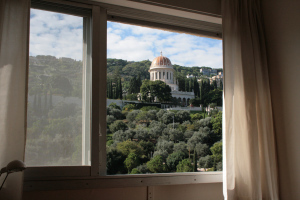
A view of the Shrine of The Bab, Mt. Carmel, Israel
“His life is one of the most magnificent examples of courage which it has been the privilege of mankind to behold.”
~19th century writer A.L.M. Nicolas, writing about The Bab
This week members of the Baha’i Faith worldwide celebrate a holy day known as the Birth of the Bab. Baha’i teachings equate work performed in the spirit of service with worship. But on this day we suspend work and school in memory of someone described by a key figure in our faith as “matchless in His meekness” and “imperturbable in His serenity.”
The Bab, whose name means “Gate”, also started a spiritual revolution in the mid-1800s that resulted in the creation of the Baha’i Faith.
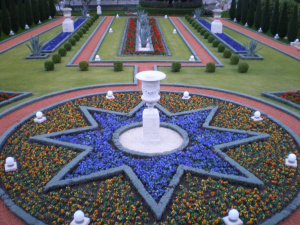 Many of us became Baha’is because we couldn’t help but feel that divine messengers, including Jesus, Muhammad, and Buddha, weren’t intended to be competing factions, but rather part of a single, progressive process through which the Creator is guiding humanity forward. The teachings of the Baha’i Faith describe how the world’s major religions are united. And it all began with the Bab, whose story is like a brief, intense storm that reshapes a landscape overnight, or what some have likened to a “thief in the night.”
Many of us became Baha’is because we couldn’t help but feel that divine messengers, including Jesus, Muhammad, and Buddha, weren’t intended to be competing factions, but rather part of a single, progressive process through which the Creator is guiding humanity forward. The teachings of the Baha’i Faith describe how the world’s major religions are united. And it all began with the Bab, whose story is like a brief, intense storm that reshapes a landscape overnight, or what some have likened to a “thief in the night.”
Born Siyyid ‘Ali-Muhammad in 1819 in what was then called Persia, the Bab lived in a time of millennial zeal in which many Christians and Muslims held an expectation that scriptural prophecies were about to be fulfilled. Orphaned early in life, The Bab was raised by his maternal uncle, who was one day told by his nephew’s teacher, an esteemed cleric, that there was nothing more he could teach his prodigious and unfailingly courteous pupil.
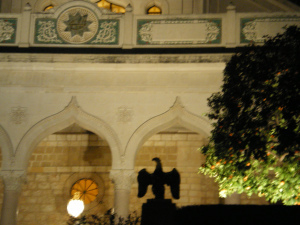 Later, in extending guidance to humanity, The Bab reminded that in order for a soul to recognize and receive divine inspiration, “eyes of the spirit” are necessary — a vision unclouded by personal attachments or preconceived notions. The promised Day of God, He declared, required new standards of conduct and a nobility of character that the Creator had destined for humanity, but which it had yet to achieve. “Purge your hearts of worldly desires,” the Bab told his earliest followers, “and let angelic virtues be your adorning.”
Later, in extending guidance to humanity, The Bab reminded that in order for a soul to recognize and receive divine inspiration, “eyes of the spirit” are necessary — a vision unclouded by personal attachments or preconceived notions. The promised Day of God, He declared, required new standards of conduct and a nobility of character that the Creator had destined for humanity, but which it had yet to achieve. “Purge your hearts of worldly desires,” the Bab told his earliest followers, “and let angelic virtues be your adorning.”
In a society in which moral breakdown was rampant, the Bab’s assertion that the spiritual renewal of society depended on “love and compassion” rather than “force and coercion” stirred enormous hope among all classes of people in Persia. His call for spiritual reformation — in particular, the uplifting of women and the poor, and the promotion of education for all — provoked an angry, fearful response from those who held religious and secular power in an oppressive society that had changed little since medieval times.
Persecution of the Bab’s followers rapidly ensued, and thousands were killed in brutal massacres. The remarkable courage — even joy — that many of His followers exhibited in the face of such carnage was documented by such Western observers as Leo Tolstoy. Eventually, the Bab was imprisoned and publicly executed before a crowd of 10,000 in 1850.
A century and a half later, the spirit of the Bab informs the lives of Baha’is, more than 5 million of us, who see ourselves as citizens of one world and friends of all faiths.
Photos courtesy / Nelson Ashberger
Adapted from:
Life at First Sight: Finding the Divine in the Details -
Life at First Sight: Finding the Divine in the Details
October 16, 2014
Spiritual evolution, or identity crisis?
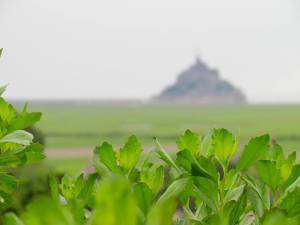
Photo: David Campbell / http://gbctours.com
Humanity is on the verge of a spiritual evolutionary leap into a future where lasting global peace is not only possible but inevitable.
Do we believe it?
If so, what vision of it do we carry inside us, how precious do we hold that vision, and what do we each do to express it?
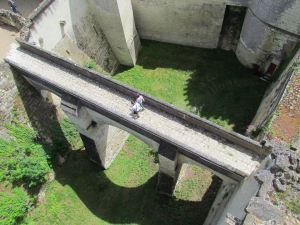
Photo: David Campbell / http://gbctours.com
The human family is moving toward this stage of spiritual maturity through a dawning recognition of the oneness and interrelatedness in which it has been created, together with all of creation.
And it is approaching the beauty of this vision through the release of the gems of spiritual potential that lie waiting in every heart.
As human beings, we’re held back from crossing this bridge to the degree that we lack understanding about our true identity and purpose.
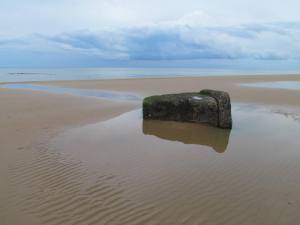
Photo: David Campbell
All around us, we can see the ways in which this lack of understanding has reached a state of desperation that is reflected in disastrous consequences at every level of human activity and relationship.
Most often this leads to isolation, a perspective from which times can look dark, indeed.
However, as souls gain awareness and understanding of our truest identity and purpose, humanity will come to understand that the forces at work in human life are impelling us away from a centuries-old preoccupation with survival and “fighting evil” towards our highest destiny.
That vision might be described as a creative, collaborative and potentially limitless building of the good, in which every individual has a part to play, and every culture its unique contributions to make.
Explore these and related themes in
With Thine Own Eyes: Why Imitate the Past When We Can Investigate Reality?
With Thine Own Eyes: Why Imitate the Past When We Can Investigate Reality?
October 13, 2014
The gift of holy curiosity
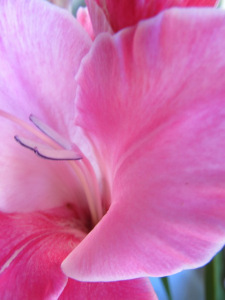
Photo: D. Kirkup Designs
Gleanings found here and there:
I live with the people I create and it has always made my essential loneliness less keen.
~ Carson McCullers
The important thing is not to stop questioning. Curiosity has its own reason for existing. One cannot help but be in awe when he contemplates the mysteries of eternity, of life, of the marvelous structure of reality. It is enough if one tries merely to comprehend a little of this mystery every day. Never lose a holy curiosity.
~ Albert Einstein
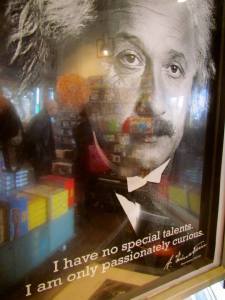
Photo: David Campbell / http://gbctours.com
Resting in the spacious flow of loving awareness — which some call God — we discover that we already have, right now within us, everything we could possibly be looking for. This is what the Hindus call ananda, and what Jesus called ‘the peace that passeth understanding.’ Our needs and wants are the illusions …
~ Russell Targ
How can we live the generosity that the Earth continues to teach us?
~ Llewellyn Vaughan-Lee


October 10, 2014
Lights that cannot be hidden
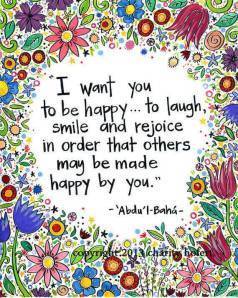
Image: Charity Hofert / https://www.etsy.com/shop/chARiTyelise?ref=em
Therefore, you must thank God that He has bestowed upon you the blessing of life and existence in the human kingdom.
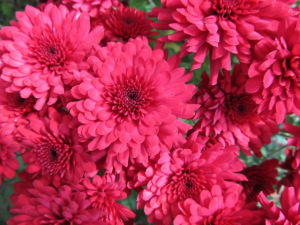
Photo: D. Kirkup / https://www.etsy.com/shop/DKirkupDesigns
Strive diligently to acquire virtues befitting your degree and station.
Be as lights of the world which cannot be hid and which have no setting in horizons of darkness.
Ascend to the zenith of an existence which is never beclouded by the fears and forebodings of nonexistence.
~ ‘Abdu’l-Baha, The Promulgation of Universal Peace, pp. 89-90


October 7, 2014
Creativity and Spirit shape each other — and us
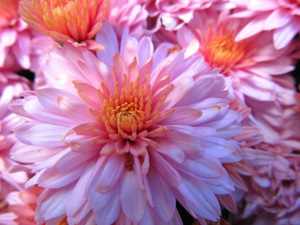
Photo: https://www.etsy.com/shop/DKirkupDesigns
My deepest thanks again to the insight-filled members of the Rochester, NY, book club who received Snow Fence Road and its author so kindly last month.
The fact that each of you serves in the field of social work probably explains why you can give a story and its inhabitants the kind of generous hearing ear that all of us long for, as souls. 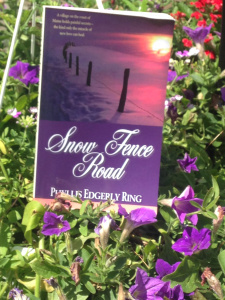
In this bright autumn week, I’ll be moving between many seasons each day as I take a writing retreat in Maine. While it surrounds me in the settings of the novel that I’ve already sent out into the world, it will take my inner scribe far from New England, into scenes and rooms an ocean away and 70 or more years ago.
It will also take me inward, one of the reasons I especially look forward to this journey. As long as I’m faithful, as long as I show up for the work each day, I will find myself drawn into discoveries I can’t possibly predict (or try to control) but that I know from repeated experience will lead both to a story’s coming whole and, mysteriously, my own deepest self.
Ponderings I’ll take with me:
How does creativity require faith in the way that spiritual life does?
How does creativity hone my abilities as a participant on the path of life?
How does creativity help me adjust as information or circumstances change?
How does creativity act as a remedy for mental tests?
How does engaging with creative process help me learn more about my truest self?



